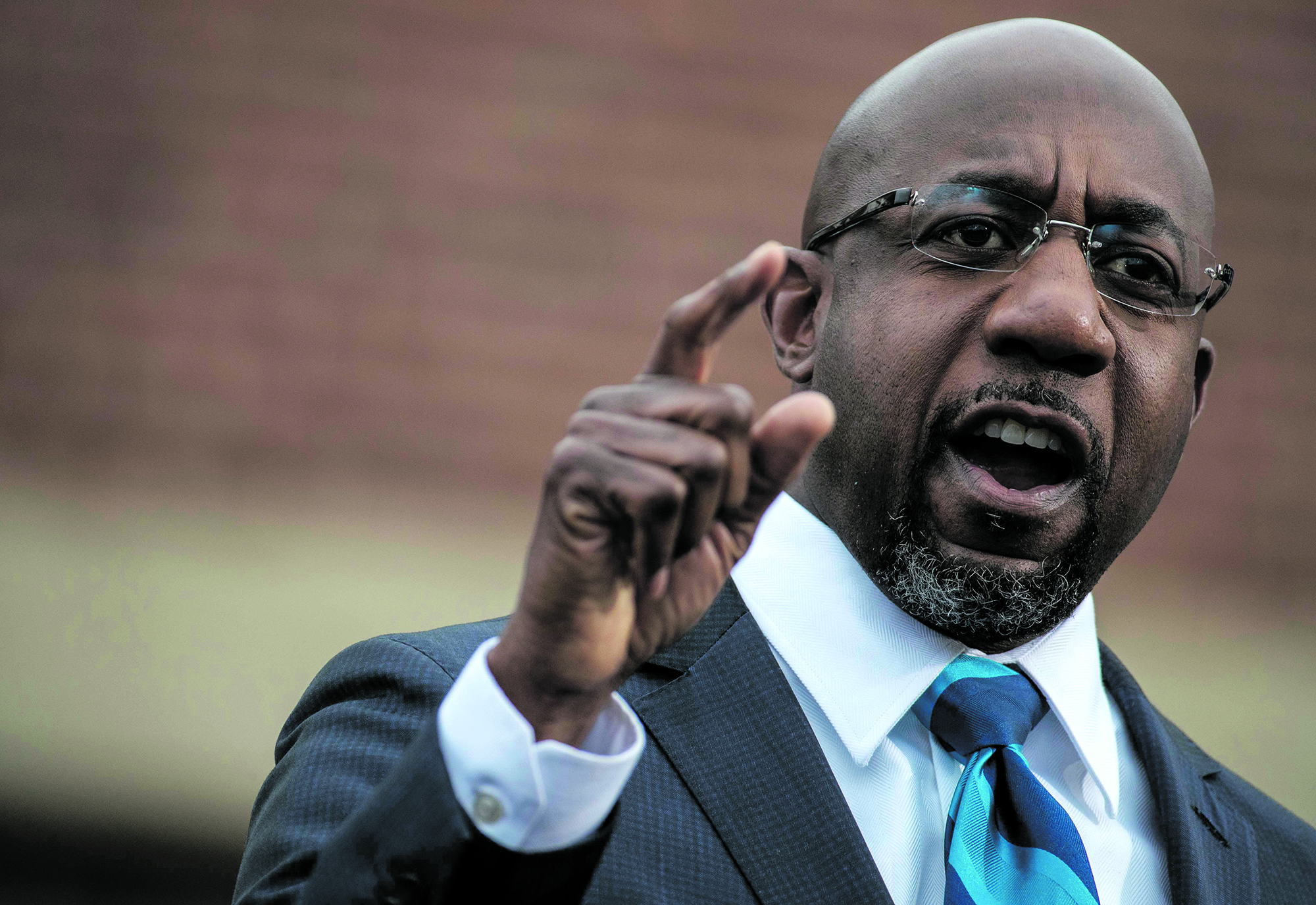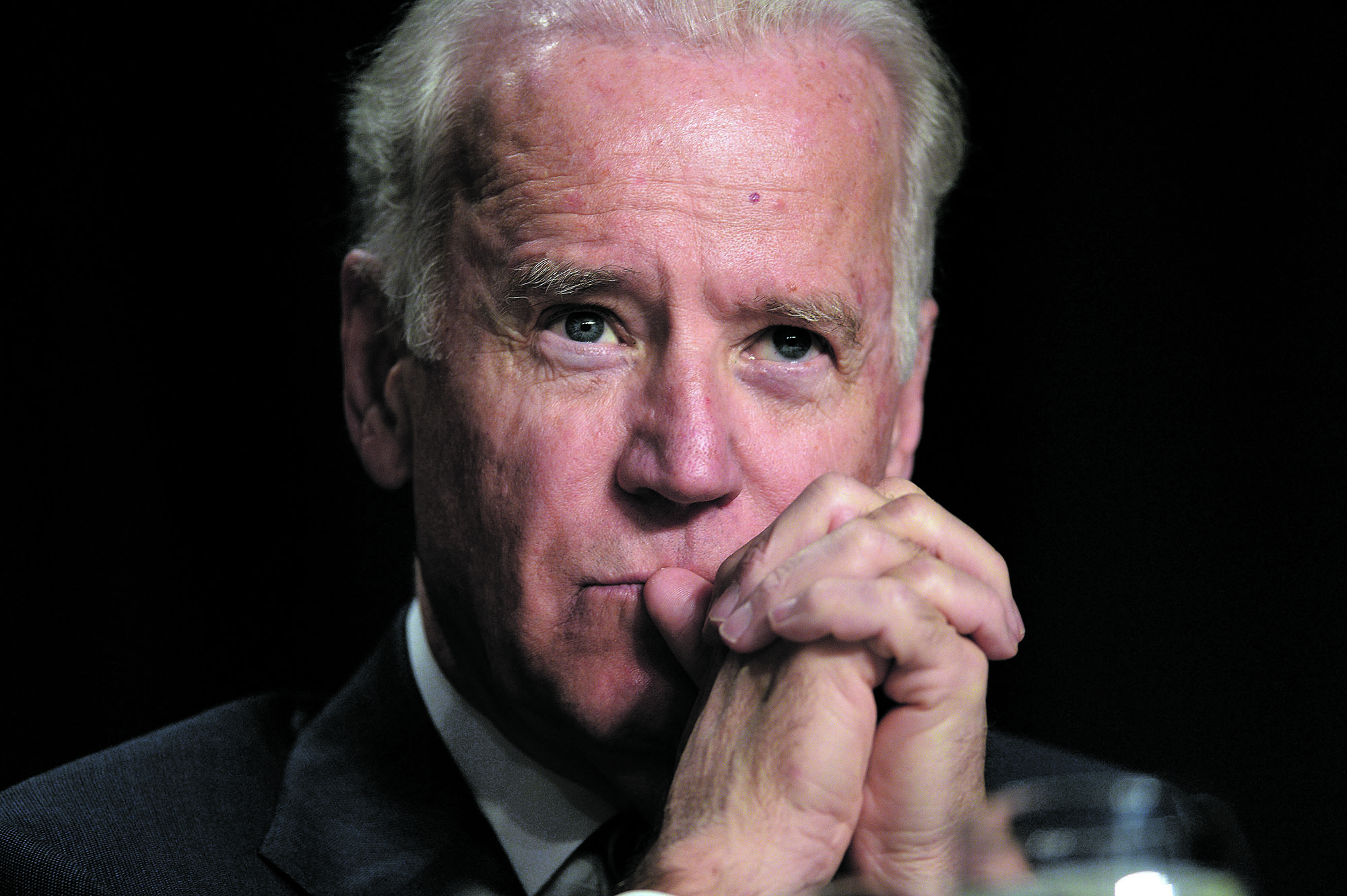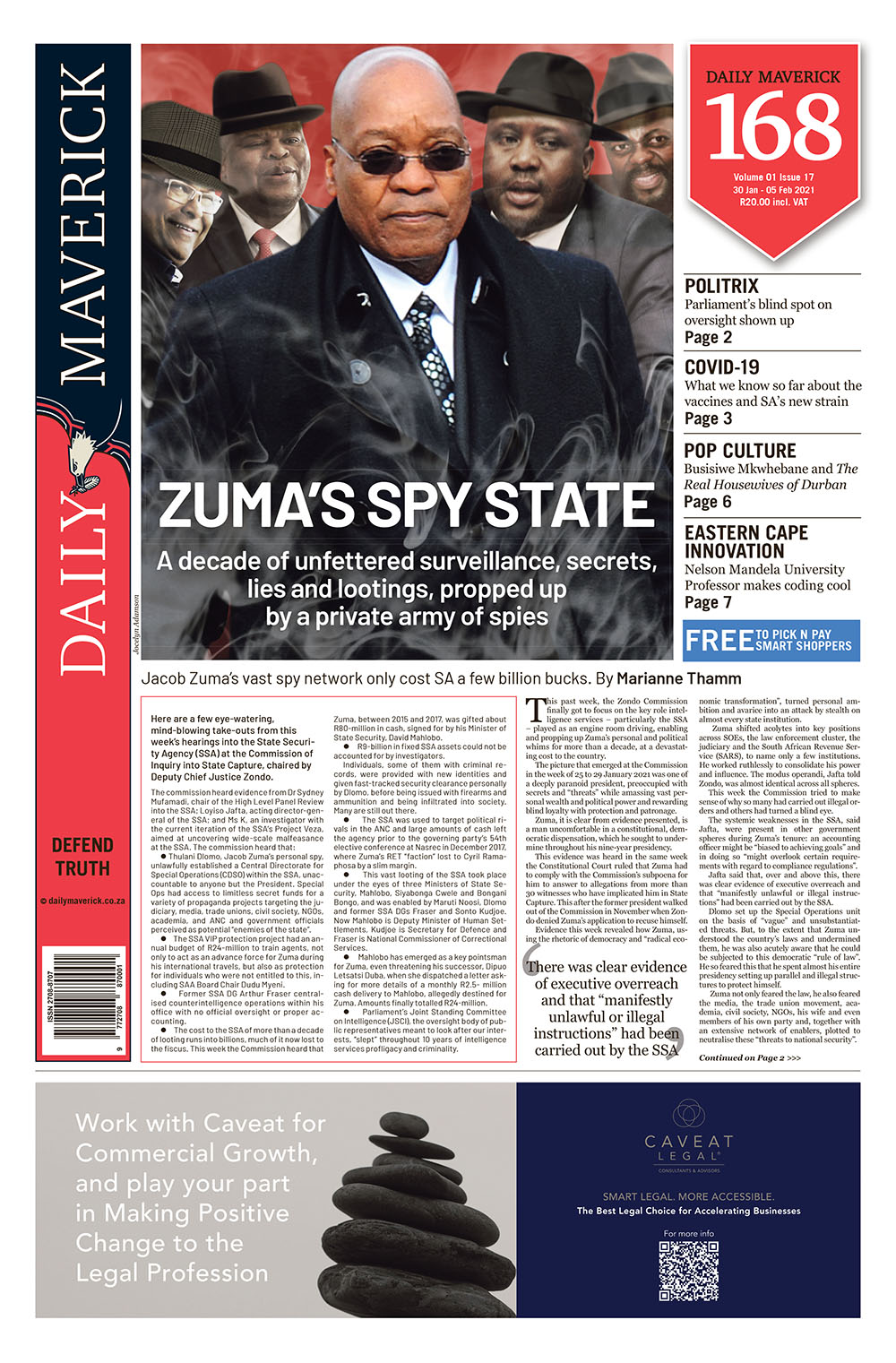First published in the Daily Maverick 168 weekly newspaper.
In recent weeks, following Reverend Raphael Warnock’s stunning win in a senatorial race in Georgia and the nuggets of biblical language and references to Pope Francis’s thoughts in President Joe Biden’s inaugural address, the American political left is atwitter with the possibility that a religious revival in American society can power the progressive left.
In a widely circulated opinion piece by Guthrie Graves-Fitzsimmons and Maggie Siddiqi of the Center for American Progress on the NBC News website, they argued:
“If there was any lingering doubt, last week made it clear: the religious left is not a curious outlier in American politics. The religious references during President Joe Biden’s inauguration, the inaugural prayer service held [on] Thursday morning with a powerful line-up of religious leaders and the swearing-in of the Reverend Raphael Warnock as a newly minted senator are proof that progressive people of faith are a powerful force in American politics.”
Well, okay, maybe… Things are never this simple in real life; it is not just a dichotomy of left versus right. Since the earliest days of American life, there have been – and continue to be – a variety of religious strands woven into American life. Accordingly, the rejoicing in Graves-Fitzsimmons and Siddiqi’s argument calls for interrogation – before accepting as “given” in the future of American political life the too-simplistic notion that the new political side of progressive religious expression will be uniquely different and more powerful than ever before.
Nearly 60 years ago, Reverend Martin Luther King Jnr had observed that 11am on Sunday was the most segregated hour in America. He was right then, of course, but the truth is that not much has changed in most congregations across the nation, in the intervening years. Even the visible public activism by religious figures from many faiths in the intense years of the civil rights struggle (and then the anti-Vietnam War protests) should not obscure the fact that a majority of religious leaders confined their activism to an occasional sermon against racism or police brutality. What was noteworthy about that movement was the unusualness of the smaller circle of clerical activists willing to put their own skulls on the line in a dangerous time.
Religious figures as varied as Rabbis Abraham Heschel and Arthur Waskow, Yale University chaplain Reverend William Sloane Coffin, and an impressive cadre of young black clergy including Martin Luther King Jnr, Jesse Jackson, Andrew Young, Leon Sullivan and Ralph David Abernathy (and, now, more recently, Reverend William Barber II), have marched, preached, protested, organised and testified since the early 1960s about the increasingly conjoined causes of civil rights and anti-Vietnam War activism. But they were not uniformly celebrated for their efforts nationally, nor did they succeed in generating a mass movement among the nation’s full cohort of religious leaders on even these issues.
There are other threads weaving religion and politics together. Go back in America’s history and the impact of religious exhortation and leadership was central in shaping the ethos of American exceptionalism. John Winthrop, even while his flock was still en route to New England aboard the Arbella, told his congregation back in 1630 what their “job one” was. His shipboard sermon reads (in its original spelling):
“…For wee must consider that wee shall be as a citty upon a hill. The eies of all people are uppon us. Soe that if wee shall deale falsely with our God in this worke wee haue undertaken, and soe cause him to withdrawe his present help from us, wee shall be made a story and a by-word through the world.”
Winthrop’s imagery of the American idea was so compelling that it has been cited by politicians for centuries, including presidents as different as Ronald Reagan and John F Kennedy. A somewhat later religious figure, Reverend Jonathan Edwards, by contrast, set the roadmap for the unforgiving, prescriptive ideal of a near-theocratic state as the natural order of things.
But by the beginning of the 18th century, there was the first of the great awakenings that moved past an established clergy, as nascent religious-populist movements spread throughout much of the new country. Over time, this populist urge took deep root in many American denominations and that recurring impulse has helped feed the current wave of religiously infused populism so prevalent now.

Democratic Senate candidate Reverend Raphael Warnock speaks during a ‘Get Ready to Vote’ rally ahead of the Georgia Senate runoff election at Pratt-Pullman Yard in the Kirkwood neighbourhood, of Atlanta, Georgia, USA, 15 December 2020. Democrat Reverend Raphael Warnock is running against Republican Senator Kelly Loeffler and Democrat Jon Ossoff is running against Republican Senator David Perdue in a 05 January 2021 runoff election. EPA-EFE/ALYSSA POINTER / ATLANTA JOURNAL CONSTITUTION
By the beginning of World War 2, the country’s most prominent mainline theologian, Reinhold Niebuhr, represented the dominant thinking in Christian theology and he had argued in a work like The Children of Light and the Children of Darkness that Christian values in the face of an evil such as Nazi Germany justified fighting such enemies, despite the usual prohibitions of “thou shalt not kill”. Niebuhr’s thoughts captured the attention of America’s political leadership and his arguments aligned religion and American internationalism well into the Cold War era.
But there were other religious forces coming through as well. A particularly important post-war theologian was New York City Presbyterian minister Norman Vincent Peale, author of The Power of Positive Thinking. One of Peale’s most prominent followers was Fred Trump – and then his son, a future president. Peale’s religious idea was a kind of modern predestination for the American middle class – prosperity was a concrete demonstration of God’s love and that love, in turn, inevitably led to prosperity – a virtuous circle just right for mid-century affluence.
Meanwhile, outside the mainline churches of the white middle class, two different strands were also gathering strength. One, of course, was among black Americans, where churches and ministers were among the leaders of the civil rights struggle. In addition, that old populist urge was giving rise to the new wave of evangelical, born-again Christian denominations.
Even if they were not overtly political, by the late 1960s, as part of a larger pushback against the greater social changes sweeping the nation, these churches and their leaders increasingly found common purpose in a coming together with the emerging conservative Republican Party that captured Democratic supporters of the South and much of the Midwest. Increasingly, these churches, exemplified by Reverend John Hagee, Billy Graham and Jerry Falwell, were taking overt political stances and positions, embracing the ideology of people like Ronald Reagan and then the now-former president, and opposing LGBTQI+ and abortion rights, and becoming deeply supportive of Israel in the Middle East as part of Biblical prophecy. Their more than 35 million voters became the bedrock for the Republican Party, and a collection of voters that could not be ignored in electoral politics. Much of this rise has been abetted through multiple cable news and religious broadcast channels, delivering their messages nationally, together with the force multiplier of the new social media streams to reach audiences and raise funds. This formula seems to work really well.
Despite the hopes of writers like Graves-Fitzsimmons and Siddiqi, so far, at least, there is little real evidence pointing to the newest “great awakening”, this time of a left-wing, progressive, religious politics in the US. And this is true despite the election of Warnock as a senator from Georgia or the depth of feelings on the part of the new president to create a presidency that comes increasingly in line with the social and political ideals of Pope Francis II. (Biden is a devout, practising Catholic and his inaugural address was notable from his citing of St Augustine’s words in his speech. But according to The Washington Post columnist EJ Dionne, some of the president’s words have already generated a strong pushback from many parts of the Catholic clergy establishment.)
But how important is religion in today’s America anyway? The Pew Research Center, one of the pre-eminent attitude survey research organisations, noted in a 14 January report: “Random digit-dial [RDD] telephone surveys show that religious ‘nones’ (people who describe themselves, religiously, as atheist, agnostic or … ‘nothing in particular’) have been growing as a share of the US adult population and Christians have been declining for quite some time. In the Center’s most current RDD polling, 63% of US adults identify as Christians (including 43% who are Protestant, 19% who are Catholic and 2% who are Mormon), and 28% are ‘nones’ (including 4% who describe themselves as atheists, 5% who are agnostics and 18% who are ‘nothing in particular’).

US President Joe Biden is pictured during the National Prayer Breakfast in Washington, DC, USA, 06 February 2014. EPA/OLIVIER DOULIERY / POOL
By way of comparison, in the Center’s polling from roughly a decade ago, in 2009, 77% of US adults described themselves as Christians (14 percentage points higher than today), and 17% described themselves as religious ‘nones’ (11 points lower than today).” (Italics added)
And in a Pew report from two months earlier, testing what lessons Americans see for humanity in the current pandemic, Pew said: “We sought to explore these questions in a recent Pew Research Center survey, conducted in mid-July on the Center’s American Trends Panel. First, we asked people: do you believe there is a lesson or a set of lessons for humankind to learn from the coronavirus outbreak? And if so, do you think these lessons were sent by God, or not?
“A large majority of US adults (86%) say there is some kind of lesson or set of lessons for humankind to learn … and about a third of Americans (35%) say the lessons were sent by God. The remainder say the lessons were not sent by God (37%), they do not believe in God (13%) or there is no lesson to be learnt (13%).”(Italics added)
Such data does not support the idea of a great progressive religious upswing affecting politics. Still, things could change in the future, proving those two authors right over the long term, especially if the economy or the disease takes a serious downturn economically, or if the pandemic shows no real signs of abating. But perhaps the best one can say now is the current climate is one of increasing secularisation, concurrently with politically charged religious feelings at the extremes. DM168
This story first appeared in our weekly Daily Maverick 168 newspaper which is available for free to Pick n Pay Smart Shoppers at these Pick n Pay stores.






















 Become an Insider
Become an Insider
“He (Warnock)genuinely believes that America is a fallen, corrupt nation, befouled by racism and besmirched by capitalism. He makes that crystal clear in his 2013 book, “The Divided Mind of the Black Church,” in which he praises Marxism and castigates “white capitalistic forces.” That’s the common thread that holds his writings and his sermons together, and no degree of eloquence or number of cute ads can disguise that fact.
One sees this most clearly in how he speaks about the man he labels as his mentor, the late James Hal Cone. Cone was a controversial Black theologian who labeled White Christians as racist and White Christianity as “the Antichrist” — that is, an evil ruler who corrupts the world.” (Washington Post [nogal]Dec 2, 2020)
When political parties enrol God as an “ardent supporter member”, then we have situations like “Zuma is God”, close prayers with “Amen”….”and Women” and growing number of “Pastors” blessing the likes of mentioned Zuma, Malema, and any character alike…….Of course, they can always claim afterwards “they were taken out of context”….
Well balanced piece, thank you. My own (amateurish) observations on politics and religion support the view that there is no dramatic shift to the world becoming more religious in its views.
It is a pity that there was not indeed a negligible swing away from religion as so many authors have over the years pointed out that the most killing on earth takes place under the auspices of religion.
Gerhard … at least you have the decency to declare yourself as an “amateurish” commentator. Unlike the previous commentator who likes to see himself (I assume such that gender identity is correct, since few females adopt that attitude) as an ‘informed’ one … but likes to hide behind initials !